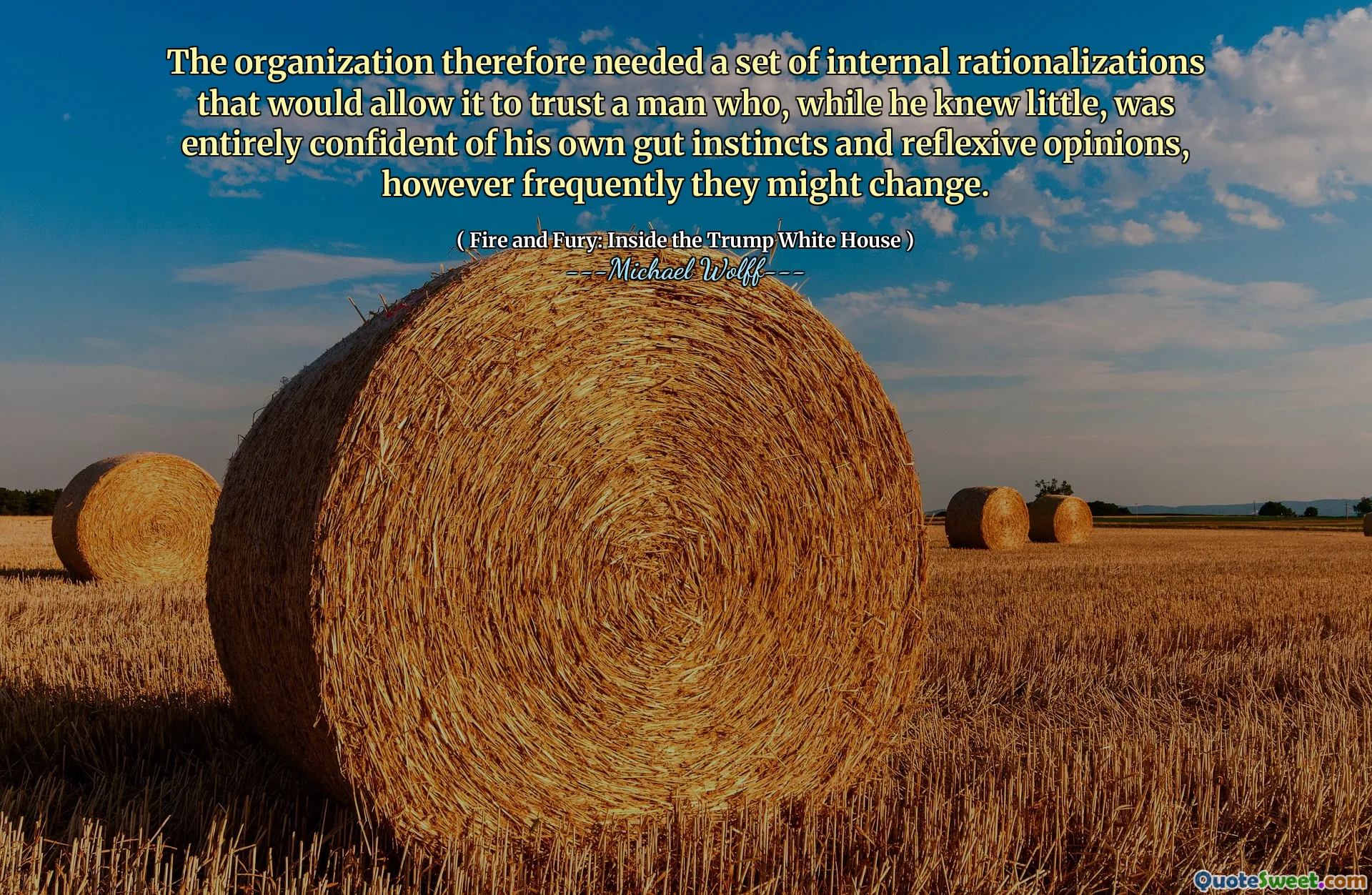
The organization therefore needed a set of internal rationalizations that would allow it to trust a man who, while he knew little, was entirely confident of his own gut instincts and reflexive opinions, however frequently they might change.
The organization found itself in a position where it had to create justifications to support a leader who, despite his lack of knowledge, exhibited an unwavering confidence in his instincts and ever-changing views. This dichotomy posed a challenge, as relying on someone with such fluctuating beliefs necessitated a form of internal reasoning to maintain trust and cohesion within the group.
This dynamic reflects a broader issue within the organization, where the need for confidence sometimes overshadowed the importance of expertise and consistent rationale. As a result, the organization had to navigate the complexities of embracing a leader whose strengths lay in instinct rather than informed decision-making, ultimately shaping its internal culture and decision processes.











